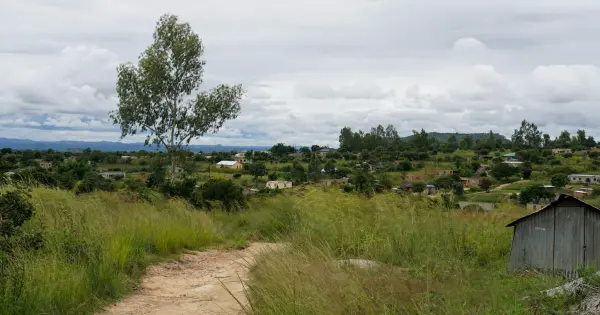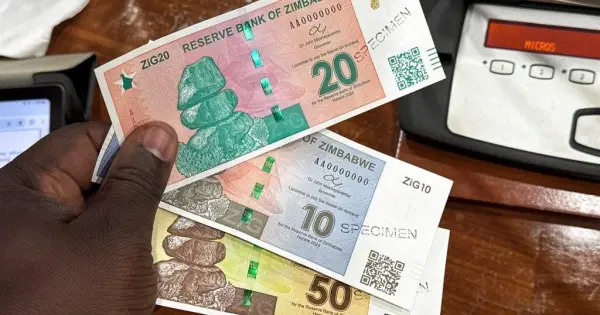If you're considering townhouse investments in Zimbabwe, you're likely wondering whether these properties offer solid returns compared to standalone homes or apartments. The confusion is understandable. Townhouses occupy a unique middle ground in Zimbabwe's property market, and many investors struggle to evaluate their true potential.
This analysis is most helpful for first-time property investors, young professionals seeking rental income opportunities, and experienced investors exploring diversification. Whether you're looking at a 3-bedroom unit in Harare or considering Bulawayo's emerging market, the fundamentals remain consistent.
The direct answer: Townhouses in Zimbabwe currently offer average gross rental yields of 6-10% annually, with purchase prices ranging from $150,000 in Bulawayo to $270,000 in Harare. These properties provide a compelling middle option between apartments and standalone houses.
Zimbabwe's 2025 property market shows renewed investor confidence. Relatively imcreased currency stability and improved infrastructure development make townhouse investments more attractive than they've been in years. Harare leads with the highest appreciation potential, while secondary cities offer better entry-level opportunities.
According to Propertybook's database of over 7,000 property listings across 80 cities, townhouses represent 9 percent of total property listings, indicating a niche but stable market segment. Our analysis draws from 636 current townhouse listings and transaction data from Zimbabwe's top 150 real estate agencies.
This guide covers current market pricing, regional investment opportunities, cash flow analysis, risk assessment, and specific strategies for maximizing townhouse investment returns.
Current Market Overview
Zimbabwe's townhouse market operates within specific parameters that smart investors need to understand. The nationwide average price sits at $250,000, with significant regional variations that create distinct investment opportunities.
Regional Price Analysis
Harare commands premium pricing at $270,000 average, reflecting the capital's economic activity and infrastructure advantages. The city's established suburbs like Borrowdale and Mount Pleasant drive these higher valuations, supported by proximity to international schools, shopping centers, and business districts.
Bulawayo offers more accessible entry points at $150,000 average. This $120,000 price difference creates opportunities for investors seeking higher percentage returns on smaller capital investments.
Price Per Square Meter Insights
The national average of $967 per square meter provides a useful benchmark. Harare properties typically command $1,066 per square meter, while Bulawayo properties average $460 per square meter. These metrics help investors compare value across different markets and property sizes.
Current market liquidity rates as moderate, meaning townhouses generally sell within 6-12 months when priced correctly. This timeframe affects investment strategy, particularly for investors planning shorter holding periods.
Bedroom Configuration Strategy
Different bedroom configurations serve distinct investment purposes and tenant demographics. Understanding these differences shapes successful investment decisions.
3-Bedroom Townhouses
Average price of $160,000 makes these properties accessible to a broader investor pool. At $563 per square meter, they offer competitive pricing compared to standalone houses in similar areas.
These units typically attract young families, working couples, and professional tenants seeking more space than apartments provide. Monthly rental ranges from $600-$1,200, depending on location and amenities.
4-Bedroom Townhouses
Premium pricing at $235,000 average reflects their appeal to larger families and higher-income tenants. The $579 per square meter rate shows these properties maintain value efficiency despite their larger size.
Monthly rentals typically range from $1,200-$2,500, with luxury developments in prime Harare locations commanding up to $4,500. These properties attract expatriate families, senior executives, and established local professionals.
Investment returns often prove stronger with 4-bedroom units due to higher rental premiums and lower tenant turnover rates.
Regional Investment Analysis
Each region presents distinct advantages and challenges that impact long-term investment success. Smart investors align their strategy with regional characteristics.
Harare Investment Profile
Townhouses for sale in Harare offer the strongest appreciation potential, with annual growth rates of 9-14% in established suburbs. Infrastructure development continues steadily, supporting property values through improved utilities and transportation networks.
Key advantages include proximity to international schools like Borrowdale Academy and Westminster International School, major shopping centers including Sam Levy's Village and Borrowdale Village Walk, and comprehensive healthcare facilities such as Borrowdale Medical Centre.
Higher entry costs require larger capital investments but typically deliver more predictable returns and easier resale opportunities.
Bulawayo Opportunities
Lower entry prices create opportunities for investors with limited capital or those seeking portfolio diversification. The city's industrial base provides steady employment for potential tenants.
Rental yields often exceed Harare percentages due to lower purchase prices, though absolute rental amounts remain smaller. Patient investors may benefit from future development as Zimbabwe's economy continues recovering.
Market liquidity takes longer in Bulawayo, with typical sale periods extending 8-15 months. This timeline affects exit strategy planning.
Cash Flow Analysis Framework
Successful townhouse investment requires understanding all income and expense components. Monthly cash flow determines investment viability and influences financing decisions.
Income Components
Monthly rental represents the primary income source. Market rates vary significantly by location, property condition, and included amenities. Harare properties command $800-$4,500 monthly, while Bulawayo units typically rent for $400-$1,500.
Some developments allow short-term rental arrangements, potentially increasing income but requiring active management. This strategy works best in areas with business travel demand or near conference facilities.
Operating Expenses
Townhouse or Cluster group fees range from $50-$150 monthly, covering shared area maintenance, security services, and sometimes utilities. These costs impact net returns but provide valuable services that justify rental premiums.
Property taxes typically consume 1-2% of property value annually. Local councils assess these rates, and they vary by municipality and property classification.
Insurance costs average $200-$500 annually, depending on coverage levels and property value. Comprehensive coverage protects against fire, theft, and structural damage.
Maintenance reserves should account for 5-10% of rental income. Townhouse maintenance typically costs less than standalone houses due to shared infrastructure and professional management.
Risk Assessment Considerations
Every investment carries risks that smart investors identify and manage proactively. Townhouse investments present specific risk factors alongside their advantages.
Market Liquidity Risks
Moderate liquidity means selling quickly may require price concessions. Investors should plan holding periods of at least 3-5 years to avoid forced sales during unfavorable market conditions.
Limited buyer pools for specific price ranges can extend sale periods. Premium properties face smaller buyer segments, while entry-level units compete with apartments and older houses.
Regulatory Restrictions
Homeowners associations impose rules that limit modifications and rental arrangements. Some developments restrict short-term rentals or require owner approval for tenant selections.
Future fee increases can impact investment returns. Well-managed associations typically implement gradual increases, but poor financial management can result in special assessments.
Economic Factors
Currency stability affects property values and rental income. Zimbabwe's improving economic conditions support property investments, but investors should monitor exchange rate trends and inflation impacts.
Employment levels in target areas influence tenant demand and rental rates. Areas with diverse economic bases typically provide more stable rental markets.
Investment Strategy Implementation
Successful townhouse investment requires systematic approach combining market knowledge with financial discipline. These strategies help investors make informed decisions.
Property Selection Criteria
Location quality trumps property condition in most situations. Properties near quality schools, shopping centers, and employment hubs maintain value better during market fluctuations.
Focus on developments with professional management and adequate reserves. Well-maintained common areas and prompt service responses justify higher purchase prices through sustained rental premiums.
Financing Considerations
Most investors require financing to purchase townhouses. Local banks typically offer mortgage terms of 15-20 years with deposit requirements of 20-30%.
Interest rates affect monthly cash flow significantly. Current rates range from 8-15% annually, depending on borrower qualifications and loan terms.
Pre-approval helps investors move quickly when suitable properties become available. Market competition often favors buyers who can close transactions rapidly.
Portfolio Building Approach
Starting with one property allows investors to learn market dynamics before expanding. Experience with tenant management, maintenance coordination, and market timing proves valuable for future investments.
Geographic diversification reduces risk by spreading investments across different suburbs or cities. This strategy helps balance high-appreciation areas with strong cash flow markets.
Consider mixing bedroom configurations to serve different tenant segments. A portfolio combining 3-bedroom and 4-bedroom units provides flexibility and reduces vacancy risks.
Performance Optimization Tactics
Maximizing townhouse investment returns requires ongoing attention to property management and market positioning. These tactics help investors outperform average market returns.
Tenant Selection and Retention
Quality tenants reduce turnover costs and property damage. Thorough screening processes including employment verification and reference checks identify reliable tenants.
Competitive pricing attracts quality tenants while maximizing income. Regular market analysis ensures rental rates remain appropriate for current conditions.
Property improvements that justify rental increases include modern appliances, security upgrades, and landscaping enhancements. Focus on improvements that provide clear value to tenants.
Market Timing Strategies
Purchase timing affects long-term returns significantly. Buying during market downturns provides better entry prices and higher appreciation potential.
Monitor development pipelines in target areas. New infrastructure projects often signal future appreciation opportunities but may temporarily increase supply.
Seasonal rental patterns affect cash flow timing. Understanding peak rental seasons helps optimize tenant turnover and rental rate adjustments.
Exit Strategy Planning
Define clear exit criteria including target appreciation levels and holding periods. Market conditions change, and successful investors adapt their strategies accordingly.
Capital gains tax implications affect net returns from property sales. Current Zimbabwe tax laws provide specific treatment for investment property sales.
Consider refinancing options as properties appreciate. Accessing equity through refinancing can fund additional investments without property sales.
The Zimbabwe townhouse market offers solid investment opportunities for investors who understand market dynamics and implement disciplined strategies. Success requires careful property selection, realistic financial projections, and ongoing market monitoring.
Take Action: Explore current townhouse listings on Propertybook to identify properties matching your investment criteria.
For personalized investment analysis and market insights, contact our expert team who can provide detailed comparisons and financing guidance specific to your situation.




